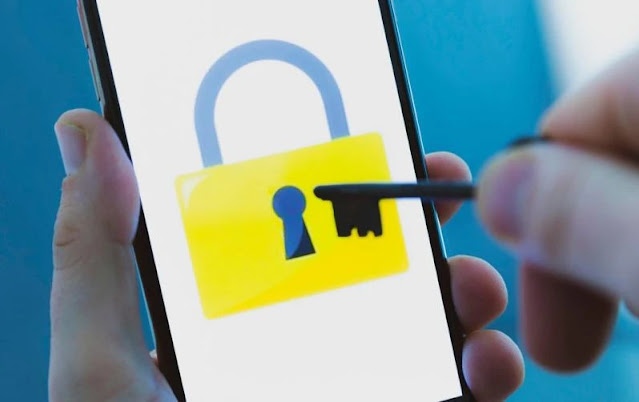Ways to Protect Your Business By Your Smartphone
In this digital age, smartphones have become indispensable tools for running a business. With the rise of mobile technology and the widespread use of smartphones, businesses need to be more vigilant about smartphone security. Smartphones have become a target for hackers and cybercriminals, who are constantly looking for vulnerabilities in business networks. This is why it is important to take proactive measures to protect your business and your data. Here are 8 smartphone security tips that businesses can use to keep their data and devices secure.

Protect Your Business with These 8 Smartphone Security Tips
1. Use Strong Passwords and Biometric Authentication
The first and most basic tip for smartphone security is to use a strong password to unlock your device. A strong password should contain a variety of uppercase and lowercase letters, numbers, and special characters. Also, if your phone has a fingerprint or face recognition system like the huawei p60 pro Kunlun Glass, then why not? It can add an extra layer of safeguard.. Always avoid common or easily guessable passwords like "1234", "password", or "qwerty".
2. Use Mobile Device Management (MDM) Solutions
MDM is a software tool used to manage and monitor mobile devices in the workplace. By using MDM solutions, businesses can protect their sensitive data and control the use of apps and other features on employees' smartphones. With MDM, businesses can also remotely wipe the device if it's lost, stolen, or if an employee leaves the company.
3. Keep Mobile Operating Systems and Apps up to Date
It is important to regularly update the mobile operating system and apps on your smartphone to ensure that they are all running the latest versions. These updates often contain important security patches and bug fixes that can help prevent vulnerabilities and keep your data safe.
4. Beware of Phishing Scams and Malware
Cybercriminals often use phishing scams to trick users into downloading malware or giving away sensitive information. These scams can come in the form of fake emails, text messages, or phone calls. Always be cautious of unsolicited requests for personal or financial information and only download apps from trusted sources like the Google Play Store or the Huawei App Store.
5. Use Encryption to Protect Data
Encryption is a security technique that converts information into code that can only be decoded with a specific key. By using encryption, businesses can protect their sensitive data from being accessed by unauthorized users. Most smartphones have built-in encryption features that can be enabled in the device settings.
6. Use Virtual Private Networks (VPNs)
VPNs create a secure connection between your smartphone and the internet by encrypting all data. By using a VPN, businesses can protect their data from being intercepted by hackers or other third parties. VPNs are also useful when employees are working remotely or accessing sensitive information over public Wi-Fi networks.
7. Use Two-Factor Authentication (2FA)
2FA is a security method that requires a user to provide two forms of identification before accessing an account or app. This can contain a password and a confirmation or verification code sent to the user's phone. By using 2FA, businesses can add an extra layer of security to their sensitive data and prevent unauthorized access.
8. Educate Employees on Smartphone Security Best Practices
Finally, it is important to educate employees on smartphone security best practices so that they are aware of the risks and know how to protect their devices and data. Regular training sessions, email newsletters, and other communication channels can be used to keep employees informed about potential threats and best practices.
Conclusion
Smartphones are a critical tool for businesses in today's digital age, but they also pose significant security risks if not properly secured. By following these 8 smartphone security tips, businesses can protect their data and devices from cyber threats and ensure that they are leveraging the full potential of their mobile technology. Remember, smartphone security is an ongoing process and requires constant vigilance to stay ahead of potential threats. Stay informed and stay safe!

No comments